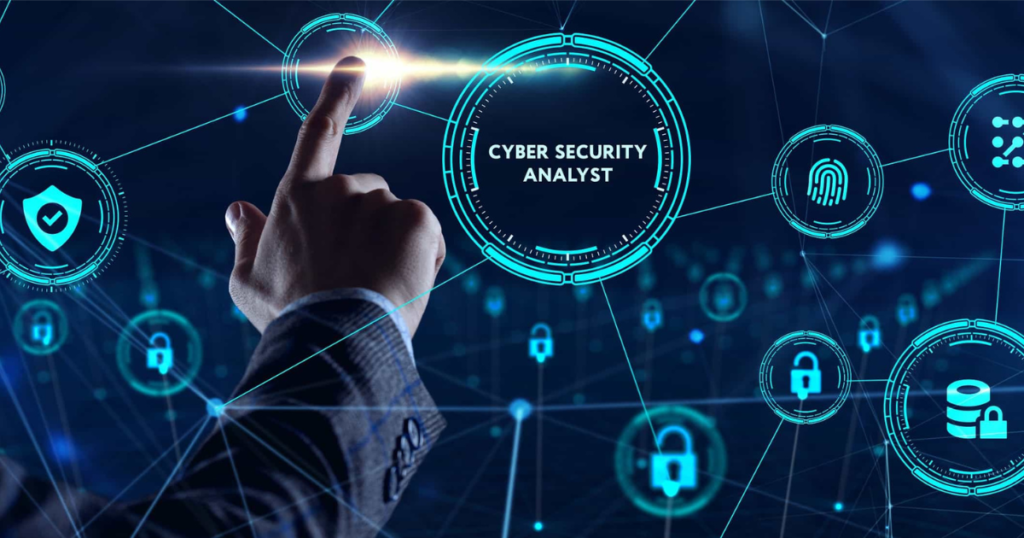Cybersecurity is a growing concern for governments worldwide as cyber threats continue to evolve. To combat these threats, government agencies hire cybersecurity professionals to protect sensitive information, secure national infrastructure, and defend against cyberattacks. Cybersecurity government jobs offer stable careers with competitive salaries, benefits, and opportunities for growth.
In this article, we explore the various types of cybersecurity government jobs, their responsibilities, and how you can qualify for these roles.
What Are Cybersecurity Government Jobs?
Cybersecurity government jobs involve protecting national security, government networks, and critical infrastructure from cyber threats. These roles exist across multiple federal, state, and local agencies, including the Department of Defense (DoD), National Security Agency (NSA), Federal Bureau of Investigation (FBI), and Cybersecurity and Infrastructure Security Agency (CISA).
Key Responsibilities of Cybersecurity Government Jobs
- Threat Detection and Prevention – Identifying and mitigating cyber threats to government systems.
- Incident Response – Responding to cybersecurity breaches and mitigating damages.
- Security Policy Implementation – Developing and enforcing cybersecurity policies and procedures.
- Network Security – Protecting government networks from unauthorized access and attacks.
- Risk Assessment – Evaluating security risks and implementing measures to reduce vulnerabilities.
- Cyber Forensics – Investigating cybercrimes and tracking cybercriminal activities.
Types of Cybersecurity Government Jobs
There are various cybersecurity roles within government agencies, each with specific responsibilities and skill requirements.
1. Cybersecurity Analyst

Cybersecurity analysts monitor government networks for security breaches, analyze threats, and recommend security improvements.
2. Penetration Tester (Ethical Hacker)
Penetration testers simulate cyberattacks to identify vulnerabilities in government systems and recommend security enhancements.
3. Security Engineer
Security engineers design, implement, and maintain secure IT infrastructures for government agencies.
4. Cybersecurity Policy Analyst
Policy analysts develop cybersecurity policies, ensure compliance with federal security regulations, and advise government officials on cybersecurity strategies.
5. Incident Responder
Incident responders investigate security incidents, contain breaches, and develop strategies to prevent future attacks.
6. Cyber Forensics Expert
Cyber forensics experts analyze digital evidence to track cybercriminals and assist law enforcement agencies in cybercrime investigations.
7. Network Security Administrator
Network security administrators manage firewalls, intrusion detection systems, and access controls to protect government networks.
8. Intelligence Analyst (Cybersecurity)
Cyber intelligence analysts assess cyber threats from nation-states, cybercriminals, and terrorist organizations to prevent attacks on government infrastructure.
How Do You Qualify for Cybersecurity Government Jobs?
Government cybersecurity jobs require a combination of education, certifications, skills, and experience. Here’s how you can qualify for these roles.
1. Educational Requirements

Many cybersecurity government jobs require a degree in a related field such as:
- Computer Science
- Cybersecurity
- Information Technology
- Network Security
- Digital Forensics
- Engineering (Electrical, Software, or Computer)
However, some positions accept relevant experience and certifications in place of a degree.
2. Cybersecurity Certifications
Certifications demonstrate expertise and are often required for government cybersecurity jobs. Some of the most recognized certifications include:
- Certified Information Systems Security Professional (CISSP)
- Certified Ethical Hacker (CEH)
- CompTIA Security+ (often required for entry-level government jobs)
- Certified Information Security Manager (CISM)
- GIAC Security Essentials Certification (GSEC)
- Certified Information Systems Auditor (CISA)
- Offensive Security Certified Professional (OSCP) (for ethical hacking roles)
3. Security Clearance
Most cybersecurity government jobs require a security clearance due to the sensitive nature of the work. Security clearance levels include:
- Public Trust – Entry-level clearance for roles with minimal security risks.
- Secret Clearance – Required for positions involving confidential government data.
- Top Secret (TS) Clearance – Needed for roles with access to highly classified information.
- Top Secret/SCI (TS/SCI) Clearance – Required for intelligence and national security positions.
4. Technical Skills
To qualify for government cybersecurity jobs, candidates should possess the following technical skills:
- Proficiency in programming languages (Python, C++, Java, etc.)
- Understanding of network security and firewalls
- Knowledge of cryptography and encryption techniques
- Experience with security tools (SIEM, IDS/IPS, etc.)
- Familiarity with cloud security and virtualization
5. Experience in Cybersecurity
Practical experience is essential for government cybersecurity jobs. Ways to gain experience include:
- Internships with government agencies
- Hands-on projects in penetration testing, security audits, or forensics
- Participation in cybersecurity competitions (e.g., Capture The Flag events)
- Working in IT security roles in the private sector
The Hiring Process for Cybersecurity Government Jobs
The process for securing a cybersecurity government job typically includes the following steps:
1. Applying for the Job
Government job postings are usually listed on official websites such as:
- USAJobs.gov (Federal cybersecurity job listings)
- NSA Careers (NSA cybersecurity positions)
- CIA Careers (Cybersecurity roles in intelligence agencies)
- CISA Jobs (Cybersecurity and Infrastructure Security Agency positions)
2. Background Check and Security Clearance
Candidates must undergo background checks and security clearance investigations to ensure they can handle sensitive information.
3. Technical Assessments and Interviews
Many government cybersecurity jobs require passing technical exams and multiple interview rounds assessing both technical and analytical skills.
4. Training and Onboarding
Once hired, cybersecurity professionals may undergo additional government training programs to ensure they meet national security standards.
Future of Cybersecurity Government Jobs
As cyber threats become more sophisticated, the demand for cybersecurity professionals in government agencies continues to grow. Key trends shaping the future of these roles include:
- Increased Focus on AI and Automation – AI-driven cybersecurity solutions will enhance threat detection and response.
- Expansion of Cyber Warfare Capabilities – Governments will invest more in offensive and defensive cyber capabilities.
- Stronger Cybersecurity Regulations – New laws and policies will require more compliance and security professionals.
- Growth in Cloud Security – As agencies migrate to cloud-based systems, experts in cloud security will be in high demand.
Also Read: How To Start A Career In Green Energy Government Jobs?
Conclusion
Cybersecurity government jobs are critical for protecting national security, sensitive data, and government networks from cyber threats. These roles offer excellent career opportunities with competitive salaries, job stability, and professional growth.
To qualify for a cybersecurity government job, candidates need relevant education, certifications, technical skills, security clearance, and experience. As cyber threats continue to evolve, government agencies will continue to seek skilled cybersecurity professionals to safeguard national infrastructure and sensitive information.
FAQs
1. What are the best government agencies for cybersecurity jobs?
Top agencies include the NSA, FBI, CISA, Department of Defense (DoD), and the Department of Homeland Security (DHS).
2. Do I need a security clearance for a cybersecurity government job?
Yes, most cybersecurity government jobs require at least a Secret clearance, while higher-level roles require Top Secret/SCI clearance.
3. What is the salary range for cybersecurity government jobs?
Salaries vary by role and experience, but government cybersecurity professionals typically earn between $80,000 and $150,000 per year.
4. Can I work remotely in a government cybersecurity job?
Some cybersecurity government jobs allow remote work, but many roles require on-site presence for security reasons.
5. Are cybersecurity government jobs in demand?
Yes, with rising cyber threats, the demand for skilled cybersecurity professionals in government agencies continues to increase.



